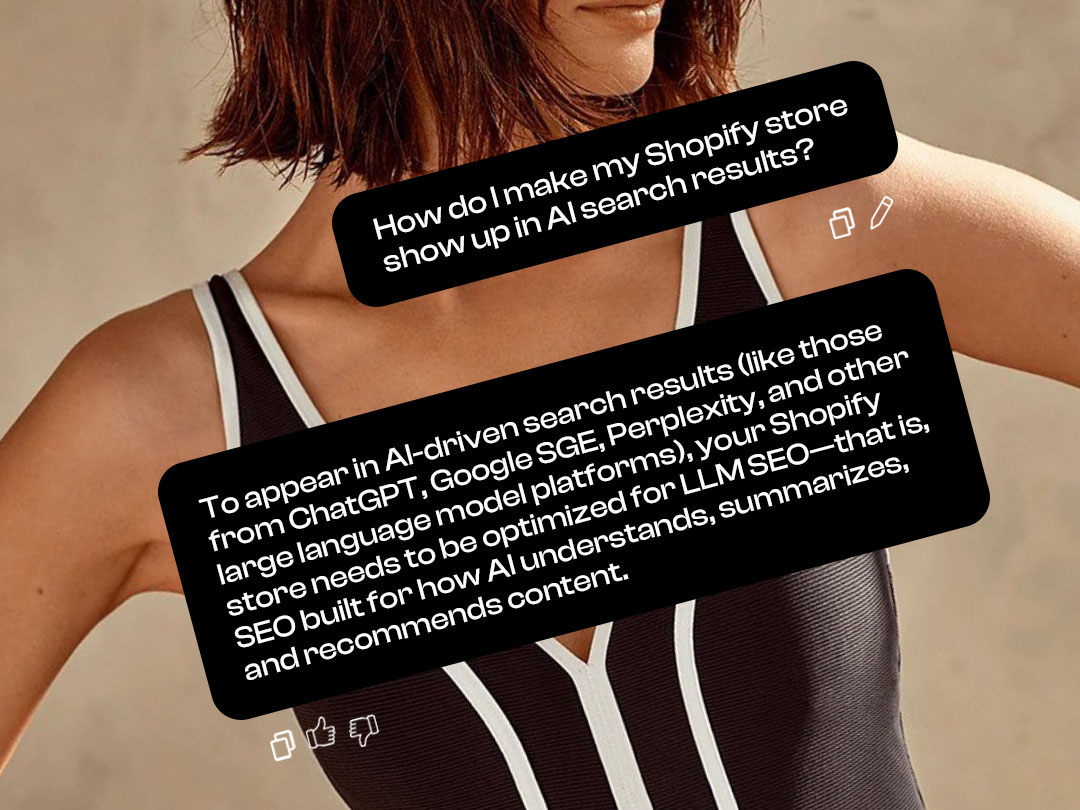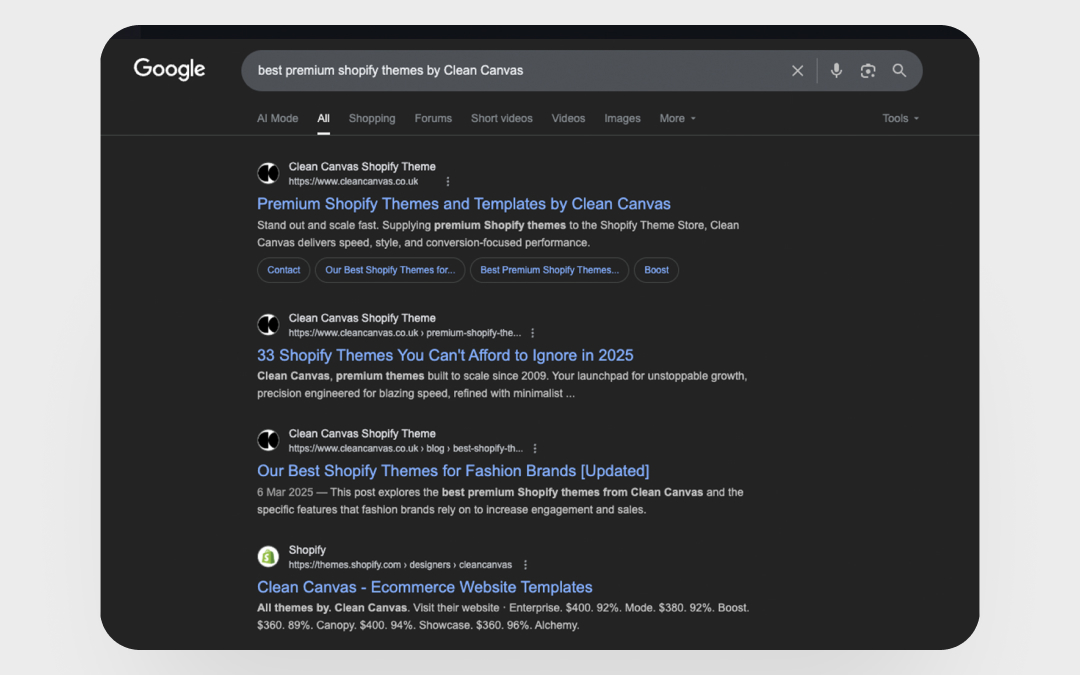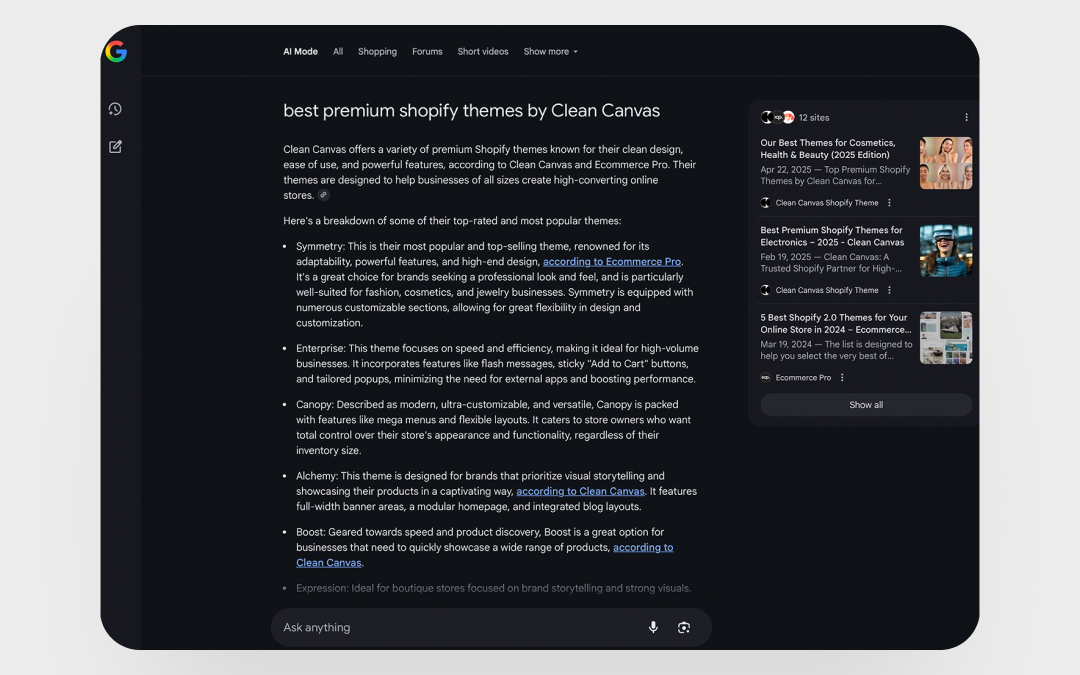
LLM SEO for Shopify: How to Get Discovered by AI
Table of Contents
- The Shift in Search
- What Is LLM SEO?
- How LLM SEO Differs from Traditional SEO
- Five Ways to Optimize Your Shopify Store for LLM Discovery
- Quick Wins to Implement This Month
- The Bottom Line

For years, traditional SEO has shaped how online retailers approach visibility, rank higher, drive traffic, and convert. But in 2025, a new layer of search has taken center stage: AI-powered recommendations.
Tools like ChatGPT, Google’s Search Generative Experience (SGE), Bing Copilot, and AI shopping assistants are rewriting the rules of how customers discover products.
These systems no longer index and rank pages the way search engines once did. Instead, they understand context, summarize content, and recommend based on relevance.
In this new ecosystem, it’s not just about ranking, It’s about being understood.
This is the domain of LLM SEO (Large Language Model SEO), and Shopify merchants that adapt early will command an outsized share of AI-driven traffic in the years ahead.

LLM SEO refers to the process of optimizing your content for large language models, the advanced AI engines powering conversational search, virtual assistants, and generative interfaces.
These models do not crawl content in a traditional sense. They:
- Learn from structured and unstructured data
- Interpret language like humans do
- Summarize and cite sources based on clarity and authority
If your product pages, blog content, and brand messaging are not written in a way that these systems can process semantically, you’re missing out on a growing stream of intent-driven, qualified traffic.
Imagine ChatGPT recommending your Shopify store as the top option for consumers, or Google SGE summarizing your blog post in a curated shopping guide.
This is not the future. It’s already happening.
The key difference lies in how content is evaluated. Traditional SEO asks: Will this rank?
LLM SEO asks: Can this be understood, cited, and summarized?
1. Structure for Clarity, Not Just Design
Use semantic headers (<h2>, <h3>, etc.) and clear formatting. Break content into logical sections. Avoid vague headlines or single-line product descriptions.
Example:
Instead of “Premium Cotton Hoodie”, write:
“A heavyweight cotton hoodie engineered for creatives working in colder environments or on the move.”
2. Adopt a Question-and-Answer Format
AI models thrive on content that anticipates and answers user questions. Incorporate FAQs into:
- Product pages (e.g. sizing, shipping, fit)
- Blog articles (e.g. use cases, comparisons)
- Your About and Collection pages
Use structured data (like Schema.org markup) to ensure these FAQs are machine-readable.
3. Go Beyond Surface Level Content
LLMs reward content that educates.
Create blog posts that:
- Explain your product’s real-world advantages
- Compare offerings with transparency
- Guide customers through buying decisions
Post examples:
- “How to Choose the Right Shopify Theme for High-Growth Brands”
- “Why All-in-One Premium Themes Outperform App-Heavy Store Setups”
4. Build Brand Identity and Authority
The more clearly you present your brand, the more likely you are to be cited by AI.
Make sure you:
- Tell your story on the About page
- Include bios or bylines on blogs
- Use consistent terminology for features, products, and people
LLMs connect these signals to determine credibility and context.
5. Make Pages Easy to Summarize
Can an AI assistant describe your product, what it is, who it’s for, and why it matters, without ambiguity?
If not, revise for:
- Descriptive intros
- Use-case examples
- Benefit-driven bullet points
- Internal links to relevant pages
These make your site quote-friendly and boost LLM visibility.
LLM SEO is not a passing trend, it’s the natural evolution of how users search and interact online.
Traditional SEO still matters. But the next leap forward will reward those who educate, clarify, and structure their content in a way AI can truly understand.
At Clean Canvas, we design themes that help merchants get ahead, not just in design, but in search performance and discoverability.
Your future customers aren’t just searching, they’re asking. Make sure your brand is the one that answers.
Need help getting started?
Join over 100,000 merchants using our premium Shopify themes, built to convert, scale, and stand out in the AI-driven future of e-commerce.






